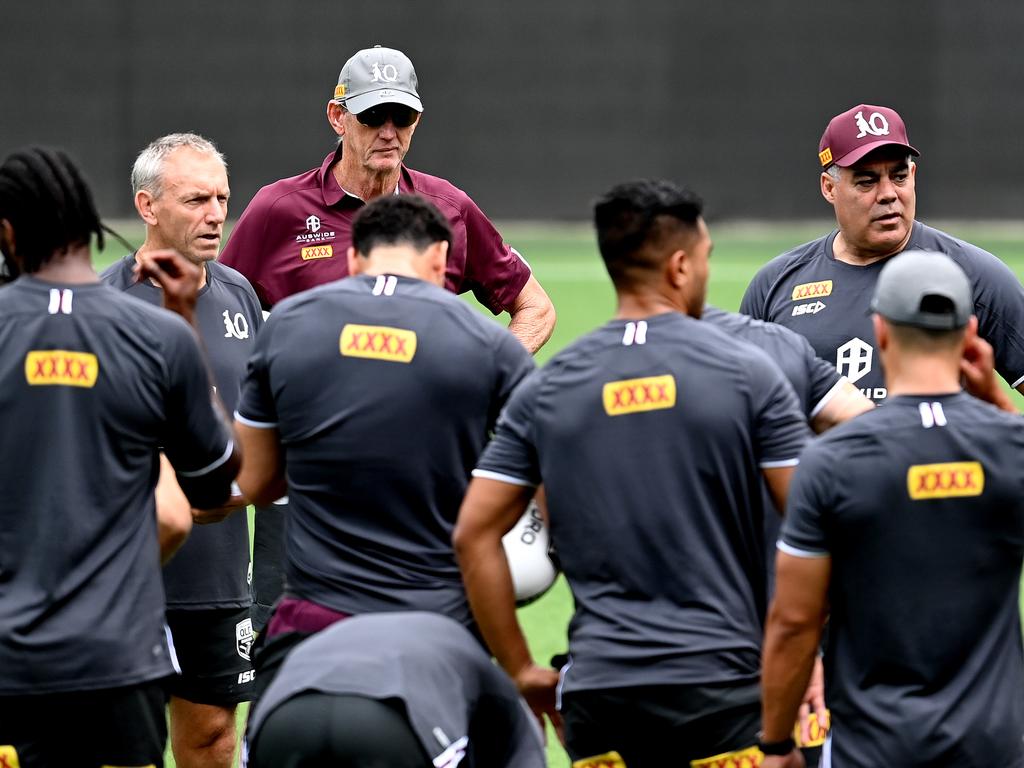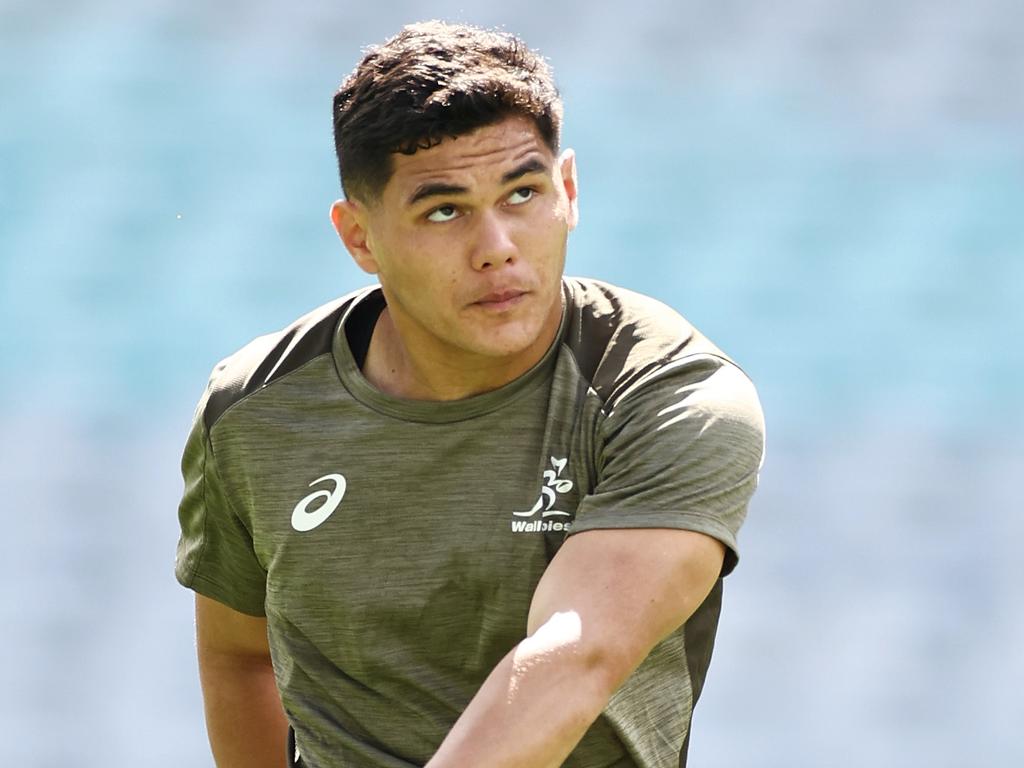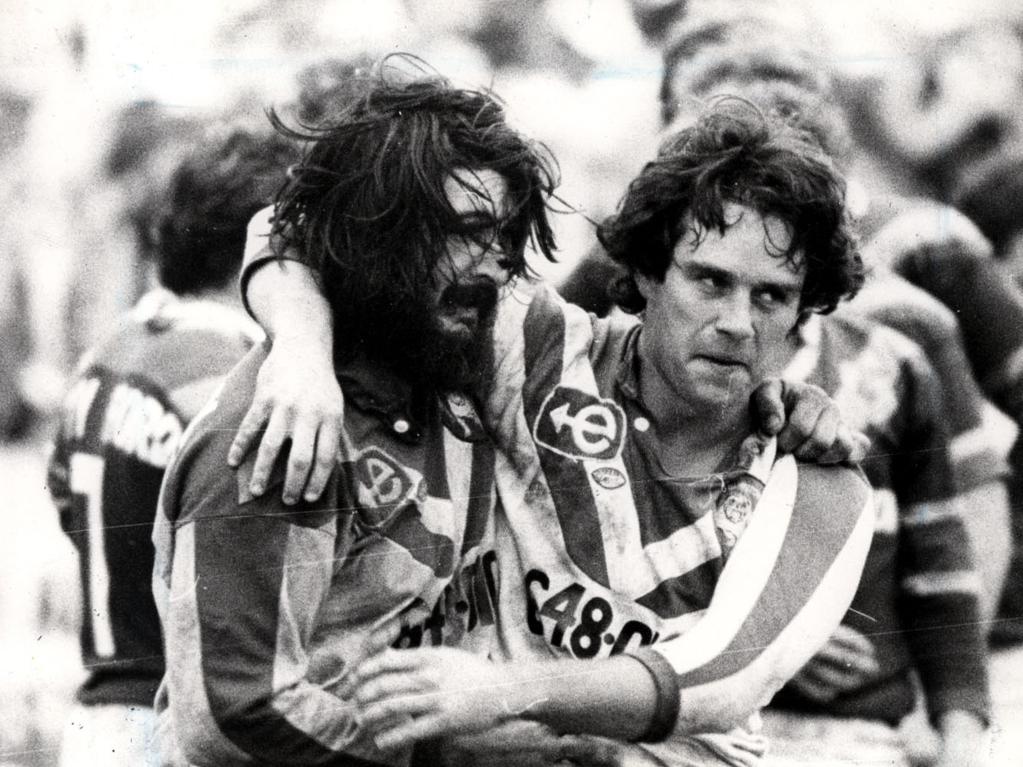Dan Palmer finds the courage to speak out
The Bledisloe battle provides one of the few instances in Australian rugby of a match getting the coverage it deserves. But what I now intend writing about receives virtually no publicity.

The Bledisloe battle provides one of the few instances in Australian rugby of a match getting the coverage it deserves. But what I now intend writing about receives virtually no publicity, no attention. Indeed, it is the very fact that it is remains unmentionable, that talk of it happens only beneath the radar, that makes it so important.
Dan Palmer didn’t want to write a column in the Sydney Morning Herald about having spent a lifetime in rugby while concealing the fact he was gay. But he felt that by doing so he might make it easier for someone who finds themselves in a similar position.
Although he played only one Test for the Wallabies – a match against Scotland in Newcastle in 2012 that was memorable for one reason only: it was played in the worst conditions of any international this century – Palmer was a highly-regarded player. After starting out with the Waratahs, he became vice-captain of the Brumbies and was considered a tighthead on the rise when, just a few months after making his Test debut, he signed to play in France for Grenoble. Sadly, he never played for them because of a persistent foot injury and though he made a brief return to the Brumbies as an injury replacement for a tour to South Africa, he ended his rugby career in 2015.

Although he is an accomplished scrum coach and was even asked by Rugby Australia earlier this year to evaluate the scrummaging technique of Taniela Tupou, there is far more to him. He has completed a double degree in science and psychology at the ANU and is now halfway through his doctorate on the cellular mechanisms of brain function.
So Palmer is something of a Renaissance Man, respected in both the sporting arena and academia. As someone who regularly reads his rugby columns on The Roar, I can vouch for his ability to construct a well-reasoned, persuasive argument. And yet he stayed silent about the very thing that caused him to cry himself to sleep every night, that drove him to numb his brain with heavy cocktails of opioids.
It has been pretty well reported the stance that Rugby Australia took in response to Israel Folau’s Instagram messages warning that homosexuals were headed for hell unless they repented. To its considerable and continuing cost, it came out and stated that rugby was an inclusive sport, a sport for everyone. Even a year and a half later, there still are people who work the tiresome phrase “go woke, go broke” into any and every rugby subject. Dane Haylett-Petty selected at fullback for the Wallabies … “go woke, go broke”. Fraser McReight to make his debut off the bench … “go woke, go broke”
I have been mauled by this particular bear more times than I care to recall and I reluctantly poke it now only to point out that Palmer could hardly have found himself in a more supportive environment. Of course, the Folau business would not happen until long after he had retired but Gareth Thomas, the dual international who at one time held the record for most rugby caps for Wales, came out as gay in December 2009 and caused barely a ripple in rugby. Two years earlier, referee Nigel Owens had made a similar announcement. He subsequently went on to break the world record for most Tests refereed and deservedly was given the plum appointment of controlling the 2015 World Cup final between Australia and New Zealand.
So even though Palmer knew his family and friends would accept him for who he was, even though he played an inclusive sport, he didn’t feel at liberty to speak out. “I never had any doubt about that, they were always very loving and supportive,” Palmer wrote. “Rather, I thought they would feel like I had deceived them, that I was somehow untrustworthy.
“I fantasised about disappearing, changing my name and starting my life all over again. It is not an exaggeration to say my own death felt preferable to anyone discovering I was gay.”
And so, worried that his rugby performances would be viewed through the prism of his sexuality, he continued to live in limbo. Rarely did he have to lie directly about being gay but he did not bother correcting people’s assumptions that he was straight. He became very good at playing the role expected of him, he wrote. It is only now that he has spoken out that we begin to realise what a toll it took on him, physically and mentally, to maintain that facade.
Palmer is, apparently, only the third gay man to come out in the history of Australian professional sport. Everyone recognises that this figure is the cruellest of jokes, that it does not even remotely convey the reality of the situation. But even in 2020, it still takes enormous courage for a gay man to find his voice. What does it say about the homophobic language still used in sport? Nothing good, that’s for sure.
Wallabies captain Michael Hooper was asked about Palmer’s column at Friday’s pre-Test press conference and he spoke glowingly in his praise. “He is a great bloke, a great Wallaby, a great rugby player and now coach … I’m wishing him all the best.”
He was asked whether Palmer’s example might be followed, that other gay players might choose to speak out. “I’m not sure and that’s why someone like Dan is putting that out there.”
Yet the mere fact that the Australian captain was asked to comment on a column about a former player’s sexuality perhaps goes a long way to explaining why Palmer remained silent for such a long time. “It has occurred to me previously, and hit me again now, that the need for me to come out to you like this is a very strange thing,” Palmer wrote. “After all, none of my friends have ever sat me down for a serious conversation and declared that they were straight – that would be insane.
“Why then do I feel the need to do essentially the same thing? At this point in time it is obviously necessary – I’m not that naive – but when an article like this is as irrelevant as its (straight) counterpart, we will be closer to where we need to be.”
In the meantime, perhaps keep those “innocent” homophobic comments to yourself. You never know who might be listening.







This wasn’t the column I expected to be writing on arguably the biggest day of the year in Australian rugby, with the Wallabies and All Blacks about to do battle at ANZ Stadium on Saturday night but then, like everyone else this year, I’ve learned to be very adaptable.